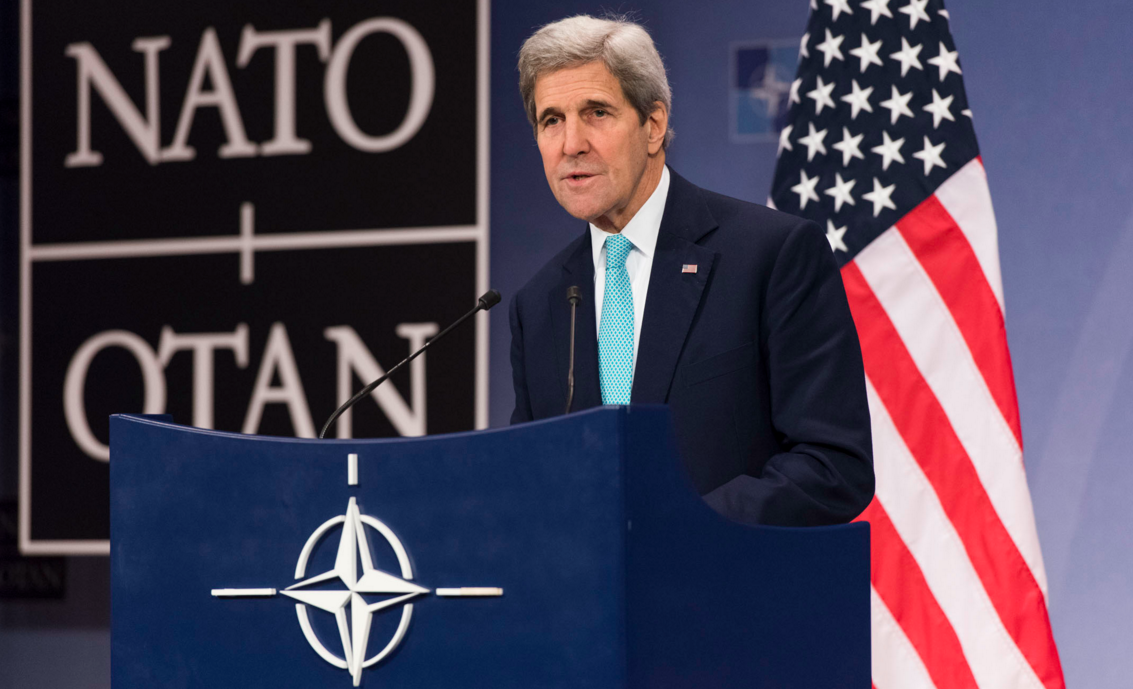Writing in Al Monitor, Washington-based analyst Fahad Nazer comments that Saudi Arabia may be aiming to form an Islamic NATO of sorts, in part because of the turmoil and instability surrounding the Kingdom from virtually all sides. Saudi Arabia’s government sees a more active foreign policy as essential, especially in the absence of a physical American presence in the region.
“For much of its modern history, Saudi Arabia has been known as a status quo state…its objective has often been to maintain the political order through quiet behind-the-scenes diplomacy. However, the unprecedented turmoil that has gripped the Middle East in the aftermath of the Arab Spring, and which led to the ascendance of Saudi Arabia’s biggest regional foe, Iran, and the emergence of its sworn enemy, IS, has compelled Saudi policymakers to adopt a more assertive foreign policy,” writes Nazer.
“This new Saudi thinking is also a response to the perception that the United States has elected to disengage from the Middle East and that even when it did decide to act, it seemed to lack a clear strategy; its critics argue that one example of this was its airstrikes against IS strongholds in Syria and Iraq.”
“While the Saudis still favor American weapons and are continuing to share intelligence and consult regularly with the United States, they seem to have concluded that the United States has differing threat perceptions than theirs.”
In fact, in a Defense News article, authors Awad Mustafa, Aaron Mehta and Joe Gould suggest, “The announcement of the coalition appeared to catch US officials by surprise — but, perhaps, it shouldn’t, as the idea may have come from a recent visit to the region by Sen. John McCain, R-Ariz. Al Makahleh said that last month’s visit by McCain and fellow Republican Sen. Lindsey Graham to Baghdad was the springboard for this coalition.”
Not surprisingly, any comparison to NATO at this juncture is unrealistic. The North Atlantic Treaty Organization (NATO) was formed in 1949 after World War II as part of an effort to balance Russia in Eastern Europe and NATO is still seen as an essential counterbalance to Putin’s Russia. The treaty stipulates that an attack on any member nation is considered an attack on all parties to the treaty. It is still a powerful organization today – for example, it was NATO that waged a war in Afghanistan to overthrow the Taliban and rid the country of Al Qaeda following the September 2011 attacks on civilian targets in the United States.
The degree to which all 32 member nations of the propose alliance agree upon a common enemy, particularly in an era when enemies are often stateless and exist across borders and regions, is the primary challenge to a durable and meaningful alliance.
The alliance already has its skeptics as early details remain scarce about who the organization will fight and how it will wage those conflicts, but despite the new organization’s lofty goals, the intent should be music to the ears of Western leaders, who have recently suffered domestic attacks from regionally-inspired extremism and want the source of these problems dealt with by regional leaders.
“The coming together of so many Muslim countries to combat terrorism — not only through military action, but also through ‘stopping the flow of funds’ to violent radicals and “confronting the ideology of extremism” — ought to be enormously important,” writes Hussein Ibish in the Arab Gulf States Institute in Washington blog.
US Defense Secretary Ash Carter suggested the United States would be watching closely… “we look forward to learning more about what Saudi Arabia has in mind in terms of this coalition. At least it appears that it’s very much aligned with something that we have been urging for quite some time, which is greater involvement in the campaign to combat ISIL by Sunni-Arab countries.”
[Read Fahad Nazer’s item in Al Monitor]









